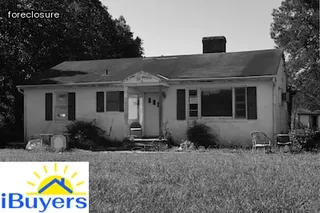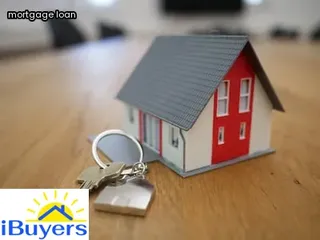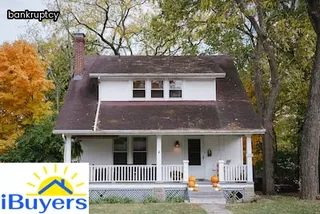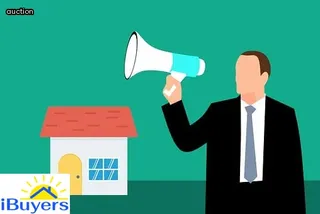Understanding the foreclosure process is key to avoiding it and saving your home. Foreclosure occurs when a homeowner cannot make their mortgage payments, and the lender begins a legal process to take ownership of the house.
It usually begins with a notice of default, which is sent to the borrower once they are behind on their mortgage payments by a certain amount of time. The notice will state how much the borrower must pay in order for the foreclosure process to be stopped.
If payment is not made within a set period of time, then the lender will start the foreclosure process by filing a lawsuit against them. After the lawsuit is filed, there may be an auction where potential buyers can bid on and purchase the property from the lender.
Knowing each step of this process can help you prepare for any potential issues that could lead to foreclosure and help you work towards saving your home.

When it comes to avoiding foreclosure and saving your home, there are a few financial options that can help. One option is to contact your lender and renegotiate the terms of the loan.
Often times lenders will be willing to work with homeowners to make payments more manageable, such as extending the repayment period or reducing interest rates. Refinancing is another way to avoid foreclosure, which allows you to take out a new loan at a lower rate in order to pay off existing debt.
You may also want to consider a loan modification, where lenders can change some of the terms of the loan like interest rate or repayment schedule without having to take out an entirely new loan. Lastly, if you’re facing temporary financial hardship due to job loss or medical bills, you can apply for forbearance and defer payment on your mortgage until you’re able to get back on track financially.
All these options provide potential solutions for those who are struggling and want to keep their home.
It is important to understand your rights and obligations when facing foreclosure. When you are in the process of foreclosure, it is important to know that you have certain protections under the law.
For example, you should be aware of the right of redemption, which gives a borrower the right to reinstate their loan if they can pay all past due amounts by a certain date. Additionally, there are laws that protect borrowers from lender harassment and require lenders to provide accurate information about the loan.
Furthermore, having knowledge of your state's foreclosure laws may enable you to delay or even prevent foreclosure altogether. Depending on where you live, some states may allow for mediation between a lender and borrower or provide other ways for borrowers to avoid or delay foreclosure proceedings.
Therefore, it is essential to research your state's laws so that you can take advantage of any available protections during this difficult time. Lastly, being aware of potential scams is also very important during foreclosure as there are individuals who will try to take advantage of desperate homeowners who are in financial distress.

Foreclosure is a difficult situation to find oneself in, and it can be tempting to give up and let the house go. Fortunately, there are alternatives that homeowners can pursue to avoid foreclosure and save their homes.
One option is loan modification, which involves the bank lowering the interest rate or extending the term of the loan in order to reduce monthly payments. Another alternative is a repayment plan, where missed payments are added onto future payments until caught up with.
A third option available to homeowners is a short sale, where they sell their home for less than they owe on it and use the proceeds from the sale to pay off what they owe on the mortgage. Finally, if all else fails, some banks may be willing to negotiate a deed-in-lieu of foreclosure agreement with their borrowers in order to avoid going through formal foreclosure proceedings.
REO foreclosure is a process that can be difficult to understand and navigate. It begins when a bank or other financial institution takes ownership of a property after the homeowner has defaulted on their mortgage payments.
The bank then works with a real estate agent to list the property and attempt to sell it at fair market value, which may be lower than what was originally owed by the homeowner. If the property does not sell within a certain period of time, the bank will repossess it and put it into its own portfolio of assets.
In order to avoid REO foreclosure and save your home, it is important to stay current with all mortgage payments, communicate with your lender if you are struggling financially, and consider other options such as loan modification or refinancing if you are unable to make payments. Additionally, seeking advice from an attorney or credit counselor can provide helpful guidance throughout the process.

Deed in lieu of foreclosure is an alternative to the traditional foreclosure process and can offer several benefits for homeowners who are at risk of losing their home. One potential benefit is that a deed in lieu transaction may be completed more quickly than traditional foreclosure, which can help homeowners save time and money on legal fees associated with the foreclosure process.
Additionally, many lenders are willing to forgive any remaining debt after a deed in lieu agreement is completed instead of pursuing collection of the debt through legal action. Furthermore, this type of agreement may have less impact on an individual’s credit score than a foreclosure would because it typically will not appear as a public record.
However, there are also drawbacks to having a deed in lieu of foreclosure on one’s record such as difficulty obtaining future financing or credit cards due to the negative mark on their credit report. Moreover, if homeowners do not qualify for this type of agreement, they may still be liable for any deficiency judgment filed by their lender.
It’s important for homeowners at risk of facing foreclosure to weigh all their options carefully before making any decisions about how best to protect their rights and interests.
One of the most important steps you need to take in order to avoid a pre-foreclose situation is to communicate with your lender. It is essential that you are honest and open about your financial situation and make sure they are aware of any struggles you may be having.
Additionally, it’s important to reach out to a housing counselor or credit counselor who can provide advice on how to manage debt and build a plan for repayment. They can also help contact the lender and negotiate better terms if needed.
You should also look into loan modification options in order to lower monthly payments, as well as explore federal programs like the Home Affordable Modification Program (HAMP) or HOPE for Homeowners. If you are able to prove hardship, there may be other options available such as forbearance, deferment or repayment plans for missed payments.
Finally, it’s always wise to create a budget and stick with it so you can make steady progress towards being able to stay in your home.

The length of the foreclosure process varies from state to state and can also be affected by a number of factors, such as the specific lender, the type of loan, and the borrower's situation. In some cases, a homeowner may have up to four months before an actual foreclosure sale takes place.
The entire foreclosure process typically begins when a borrower misses their first mortgage payment and continues until the home is sold at public auction or taken back by the lender. It is important to note that although borrowers may have several months before they are in danger of losing their home, it is important to take action as soon as possible in order to avoid foreclosure.
Working with a qualified financial advisor or credit counselor can help homeowners identify potential solutions that could prevent them from facing foreclosure and help them save their homes.
Getting behind on your mortgage payments can be daunting. If it happens to you, the best thing you can do is to create a payment plan to catch up on what you owe.
Start by contacting your lender directly and explain your situation. Most lenders will work with you to come up with an affordable payment plan.
This could include making smaller monthly payments for a period of time or even a lump sum payment if you have the funds available. To make sure you don’t fall behind again, take steps like budgeting, creating a rainy day fund, and adjusting priorities so that paying your mortgage is at the top of your list each month.
Sticking to this plan will help ensure that foreclosure doesn’t occur and that you can save your home.

Entering a forbearance agreement is a great way to delay foreclosure, giving homeowners the chance to catch up on their mortgage payments and save their home. A forbearance agreement is an arrangement between a lender and borrower in which the lender agrees to reduce or pause mortgage payments for a set period of time, allowing the borrower to financially stabilize before resuming their payments.
To enter into a forbearance agreement, homeowners should contact their lender as soon as possible, explain their financial situation, propose an amount they can afford to pay each month and negotiate conditions that both parties can agree on. It’s important to note that homeowners should be honest about how much they can afford so lenders can create an agreement that won’t put them further behind in paying off the loan.
Furthermore, borrowers should make sure that all terms are clearly understood and accepted by both parties before signing any documents or making any payments. Once everything is agreed upon, borrowers must make sure that they keep up with their payment plan as outlined in the forbearance agreement in order to avoid foreclosure and save their home.
Defaulting on a loan is a serious issue that can lead to foreclosure and the loss of your home. One way to avoid this fate is by qualifying for a loan modification, which can give you more manageable monthly payments and provide you with an opportunity to save your home.
There are several criteria that need to be met in order to qualify for loan modification after defaulting. You must demonstrate financial hardship, provide proof of income and assets, show that your current mortgage payment is not affordable when compared to your income, and be able to make the modified payment within the guidelines set forth by the lender.
Additionally, it’s important to stay in contact with your lender and keep them updated on any changes in your situation. If done correctly, these steps can help you get back on track with your finances while saving your home from foreclosure.

A short sale is a way of avoiding foreclosure and saving your home. It is an agreement between you, your lender, and a buyer where the lender agrees to accept less than what they are owed on the loan.
This means that instead of foreclosing on the home, the lender agrees to accept less money from a buyer in exchange for releasing their lien against the property. A short sale can help you avoid foreclosure and save your home by allowing you to walk away without owing any additional money on your loan.
The proceeds from the sale will go towards paying off some or all of your outstanding mortgage debt. In addition, it will also help to protect your credit score by preventing foreclosure from being reported on your record.
A Deed in Lieu of Foreclosure (DIL) is an agreement between a homeowner and the lender to transfer ownership of the property back to the lender in exchange for the release of all claims against the borrower. The DIL is an alternative to foreclosure, which can have a devastating effect on a borrower's credit score, making it difficult to obtain new financing or purchase another home in the future.
While a DIL can help avoid foreclosure and save your home, there are pros and cons associated with this option that you should understand before making any decisions. On the plus side, you may be able to remain in your home until after you have signed over the deed, but this will depend on your lender's policy.
Additionally, if you are able to negotiate with your lender, they may be willing to forgive some of your debt or provide other financial assistance. On the other hand, a DIL will still show up as a negative on your credit report and could result in significant tax liability if there is still a mortgage balance due.
Furthermore, if you do not meet all of your lender's requirements for approval or have overestimated their willingness to negotiate with you, then you may end up facing foreclosure anyway.

When foreclosure proceedings have begun, it is important to understand your repayment options and the different ways you can save your home. It is possible to negotiate a loan modification with the lender in order to reduce monthly payments or extend the length of the loan.
You may also be able to make up missed payments over time, either through a repayment plan or by refinancing the mortgage. If your financial situation allows it, you may be able to pay off all back payments at once in order to reinstate the original loan agreement.
In some cases, you may be able to negotiate a short sale with your lender in which they agree to accept less than what is owed on the mortgage. Additionally, if you are a veteran or service member, there are special programs available that can help you renegotiate your mortgage terms and assist with financial hardship.
Regardless of which option you pursue, it is important to act quickly and contact a professional who can help guide you through the process.
Reinstating the mortgage is one of the most effective ways to avoid foreclosure and save your home. When a homeowner misses a payment, the lender may begin the process of foreclosing on their property.
Reinstating the mortgage is when the homeowner pays all past due payments plus any late fees, penalties or other associated costs to bring their loan current and halt or reverse the foreclosure proceedings. To reinstate a mortgage, it’s essential that homeowners understand how much they need to pay to bring their loan current and that they have access to the funds required.
Homeowners should contact their lender directly as soon as they realize they may not be able to make a payment in order to discuss options available for reinstatement or other alternatives that could prevent them from entering into foreclosure. It’s critical that homeowners act quickly if they miss a payment as every state has different laws regarding how long you have before foreclosure proceedings begin and lenders are often willing to work with borrowers who reach out for help before missing multiple payments.

To avoid foreclosure and stay in your home, reducing the principal balance of your mortgage loan can be an effective strategy. You may be able to negotiate a short sale with your lender, which is when you agree to sell the home for less than what you owe on the loan.
You will need to provide evidence that shows why it is not financially possible for you to keep up with the payments. Additionally, you could apply for a loan modification, which is when the lender agrees to change some of the terms on your loan such as interest rate or length of payment period.
If approved, this can help lower your monthly payments and make them more manageable so that you are able to keep up with them. Another option is to refinance your mortgage loan, if qualified.
This involves taking out a new loan with a different lender who offers more favorable terms such as a lower interest rate or longer repayment term. With better terms in place, it can help reduce the amount of money owed each month and make it easier to keep up with payments while avoiding foreclosure.
One of the most effective ways to reduce your interest rate on a mortgage loan and avoid foreclosure is by refinancing. Refinancing means taking out a new loan with a lower interest rate to replace the existing one, and in doing so, you can save thousands of dollars over the life of the loan.
Additionally, if you have enough equity in your home, you may be able to adjust the loan term length or take advantage of cash-out refinancing. Both options may help you reduce your mortgage interest rate by paying off higher-rate debt or increasing your overall payment amount.
Another way to reduce your interest rate is by obtaining private mortgage insurance (PMI). PMI allows lenders to offer more favorable rates for borrowers who have less than 20 percent equity in their homes.
Finally, if you're looking for an even lower rate, consider an adjustable-rate mortgage (ARM). ARMs are available with lower starting rates than fixed-rate mortgages but can potentially increase over time.

Negotiating with your lender to reinstate your mortgage loan is an important step in avoiding foreclosure and saving your home. It's essential to understand the process, as well as the options available, so that you can make the best decisions for your individual situation.
The first step is to contact the lender and arrange a meeting. Explain why you are behind on payments and be honest about your financial situation.
Ask for details about their foreclosure prevention programs, such as forbearance or loan modification. Also discuss what documents you need to provide them with in order to proceed.
Be sure to find out if they have any deadlines or restrictions that apply. If possible, try to get everything in writing so that both parties are held accountable.
Negotiating with your lender is a complex process but it's worth it if it prevents foreclosure and helps you save your home.
Selling a home in pre-foreclose status can be a daunting and challenging task. Many homeowners are unaware of the legal requirements, property value, and time-sensitive details that must be taken into account before initiating a sale.
The process can be complicated due to the numerous documents that need to be filed, fees that must be paid, and often the involvement of third parties such as real estate agents and mortgage lenders. Furthermore, homeowners may face difficulty finding a willing buyer due to the inherent risk associated with purchasing a home in pre-foreclosure status.
This is why it’s important for homeowners to understand their options and take proactive steps to avoid foreclosure altogether. Finding alternative solutions such as loan modifications or refinancing could save the homeowner from having to go through the arduous foreclosure process.
By taking these steps early on, homeowners can ensure they get the best possible outcome when selling their home in pre-foreclosure status.

If you are facing the prospect of foreclosure, it is important to understand the impact a deficiency judgment can have on your credit score. A deficiency judgment is a court ruling that allows a lender to collect the unpaid balance of a loan from a borrower after foreclosure.
This means that if you do not pay off your entire loan amount, the lender can pursue legal action against you and collect the remaining balance. The result of this legal action can have serious repercussions for your credit score and financial health.
A deficiency judgment can stay on your credit report for up to seven years, causing your credit score to drop significantly. In addition, if the lender wins the case, they may be able to garnish wages or place liens against any other property that you own.
As such, it is essential that homeowners take all necessary steps to avoid foreclosure and keep their home out of foreclosure in order to protect their credit score and overall financial security.
One way to temporarily stall the foreclosure process is to contact your lender as soon as possible. Lenders are often willing to work with homeowners who are in default on their mortgage payments, and may be able to offer a loan modification or forbearance plan, which can help you catch up on missed payments.
Additionally, lenders may also be willing to consider a short sale of the home, which involves selling it for less than what is owed on the mortgage loan. If your lender is not willing to negotiate with you, then you can try filing for bankruptcy or asking an attorney or housing counselor for advice.
Despite these options, it is important to remember that while they can temporarily delay foreclosure proceedings, they do not necessarily guarantee that your home will be saved in the long-term.

Yes, it is possible to recover from a foreclosure and save your home. While foreclosure can be an emotionally difficult experience, it doesn't have to mean the end of homeownership.
With some determination and financial planning, recovering from the effects of a foreclosure is achievable. One of the most important ways to avoid foreclosure and save your home is to stay informed on your finances.
Make sure you understand any new loans or refinancing plans you take out and make sure you are aware of all payment due dates. Additionally, create a budget that allows for all necessary payments to be made on time.
If you are unable to make a certain payment, contact your lender immediately and explain the situation to them; this will give you the best chance at working out an arrangement with them that might allow for more flexibility in future payments. Finally, consider seeking professional help from a housing counselor who can provide resources such as budget education and debt management services that may help prevent further issues down the road.
With these steps in mind, it is possible to recover from a foreclosure and save your home.
Yes, you can refinance if you're in foreclosure. Refinancing your home loan can be a great way to avoid foreclosure and save your home.
If you are behind on your mortgage and facing foreclosure, the first step is to contact your lender. Your lender may be willing to work with you to modify the terms of your loan or offer refinancing options.
Refinancing can help lower your monthly payments, reduce the amount of interest you pay on the loan, and give you more time to pay off the loan balance. It is important to note that refinancing may require closing costs and fees which should be taken into consideration when making this decision.
Additionally, it's important to understand that refinancing will not stop foreclosure proceedings – if they have already begun. To prevent foreclosure, you need to make sure that all payments are current going forward.
Refinancing can help put a stop to those proceedings and provide financial breathing room while helping you keep your home.
A: The best way to get a house out of foreclosure is to contact the lender and discuss options such as loan modifications, repayment plans, or forbearance agreements. If you are unable to come to an agreement with the lender, you may be able to purchase the home from them through a short sale or deed-in-lieu of foreclosure.
A: To get your house out of foreclosure, it is important to create a budget, talk to your lender, explore refinancing options, and seek professional help. This will ensure that you are taking the right steps towards resolving your foreclosure issue.